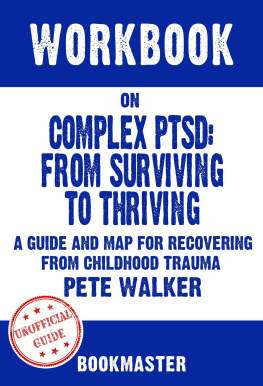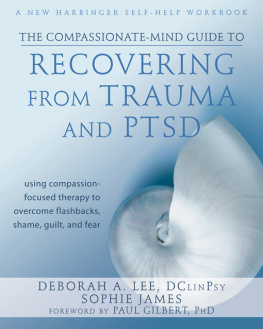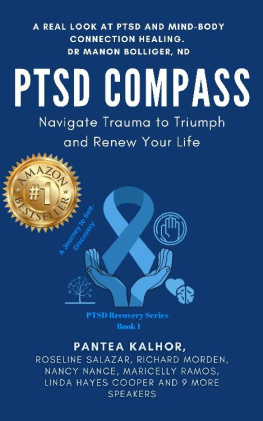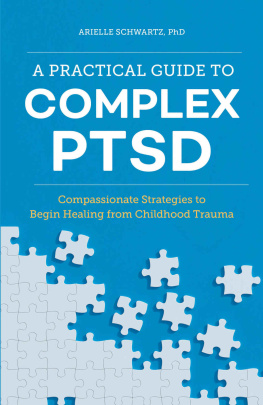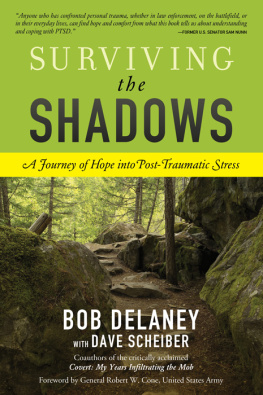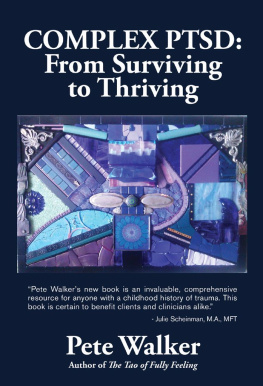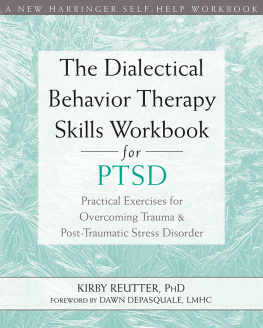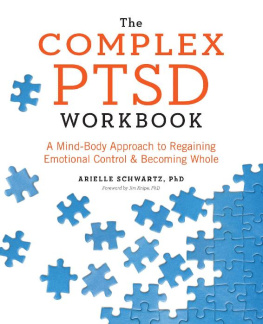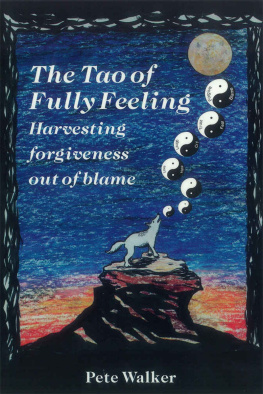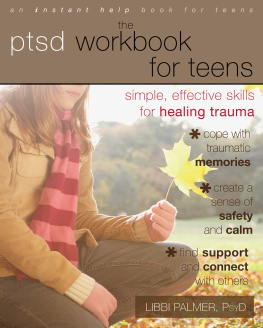BookMaster - Workbook on Complex PTSD--From Surviving to Thriving--A Guide and Map for Recovering from Childhood Trauma by Pete Walker | Discussions Made Easy
Here you can read online BookMaster - Workbook on Complex PTSD--From Surviving to Thriving--A Guide and Map for Recovering from Childhood Trauma by Pete Walker | Discussions Made Easy full text of the book (entire story) in english for free. Download pdf and epub, get meaning, cover and reviews about this ebook. year: 2022, publisher: BookMaster, genre: Children. Description of the work, (preface) as well as reviews are available. Best literature library LitArk.com created for fans of good reading and offers a wide selection of genres:
Romance novel
Science fiction
Adventure
Detective
Science
History
Home and family
Prose
Art
Politics
Computer
Non-fiction
Religion
Business
Children
Humor
Choose a favorite category and find really read worthwhile books. Enjoy immersion in the world of imagination, feel the emotions of the characters or learn something new for yourself, make an fascinating discovery.
- Book:Workbook on Complex PTSD--From Surviving to Thriving--A Guide and Map for Recovering from Childhood Trauma by Pete Walker
- Author:
- Publisher:BookMaster
- Genre:
- Year:2022
- Rating:3 / 5
- Favourites:Add to favourites
- Your mark:
Workbook on Complex PTSD--From Surviving to Thriving--A Guide and Map for Recovering from Childhood Trauma by Pete Walker: summary, description and annotation
We offer to read an annotation, description, summary or preface (depends on what the author of the book "Workbook on Complex PTSD--From Surviving to Thriving--A Guide and Map for Recovering from Childhood Trauma by Pete Walker" wrote himself). If you haven't found the necessary information about the book — write in the comments, we will try to find it.
Please Note: This is an unofficial companion guide mean to enhance your appreciation of Complex PTSD: From Surviving to Thriving: A Guide and Map for Recovering from Childhood Trauma by Pete Walker and does not contain any text of the original book.
Having grown up in a dysfunctional family, Pete Walker is no stranger to the harmful and lasting effects of trauma. Walker has suffered from Complex Post Traumatic Stress Disorder for his entire adult life and this has left him with a unique perspective on C-PTSD.
In his book, Complex PTSD: From Surviving to Thriving: A Guide and Map for Recovering from Childhood Trauma, Walker provides readers with a way to begin healing. He details the hard road towards recovery but promises a life away from merely survivinga life thats thriving.
Gain a deeper understanding, wisdom and insight to transform your understanding with this companion workbook containing the following major sections:
Discussions on the book and its chapter by chapter contents
Discussions on the reception of the book by readers and critics
Discussions on the success and uniqueness of the book
If youre looking for a concise informative summary and workbook in less than an hour, click the Buy now with 1-Click or Read for Free for instant download!
BookMaster: author's other books
Who wrote Workbook on Complex PTSD--From Surviving to Thriving--A Guide and Map for Recovering from Childhood Trauma by Pete Walker? Find out the surname, the name of the author of the book and a list of all author's works by series.

